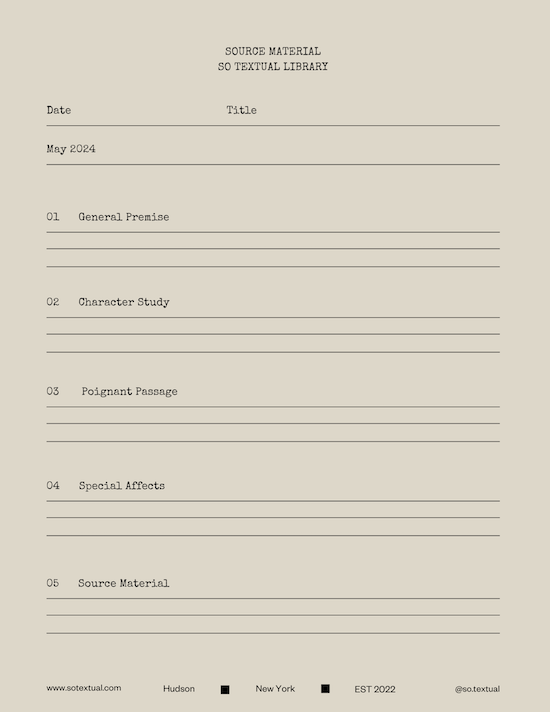THE DUD AVOCADO
The Book Club Archive
The Book Club Archive
In our discussion of The Dud Avocado by Elaine Dundy, we found ourselves basking in the glow of its champagne-fizz energy, its witty irreverence, and its unrelenting optimism, even as shadows crept around the edges. This was a story we couldn’t help but fall for: the madcap adventures of Sally Jay Gorce, a young American woman loose in 1950s Paris, as she hurls herself headlong into life, love, and the absurdity of it all.
But the magic of this book—what made our conversation so rich—is that it’s not just a romp through Europe’s bohemian enclaves. Beneath its bright surface is a profound exploration of freedom, identity, and the disillusionments that come with chasing dreams. We talked about how Dundy captures the sharp edges of youth, the giddy highs, and the crashing lows, with a voice so alive it practically leaps off the page. Sally Jay doesn’t just live—she lunges. She loves too hard, drinks too much, and narrates her escapades with a mix of hilarity and heartbreak that feels as fresh now as it must have in 1958.
What We Discussed
Sally Jay Gorce is, as one member put it, “the original messy woman.” We spent a long time unpacking her as a character—her brashness, her vulnerability, her contradictions. Sally is an ambitious romantic, craving a life of meaning and adventure, but she’s also deeply insecure, constantly performing for others and questioning her own choices. We laughed at her escapades (the pink evening gown worn as a daytime outfit, the misadventures with dubious men, the endless flow of champagne) and winced at the moments when her naivety led to pain. And yet, it’s her flaws that make her so endearing. Sally Jay is a portrait of a woman figuring herself out in real time, with all the chaos that entails.
The group also delved into the setting—1950s Paris, rendered in such vivid detail that it felt like a character in its own right. Dundy’s Paris is a city of contradictions, as intoxicating as it is alienating. For Sally Jay, it’s a place where she can reinvent herself, shedding the expectations of her American upbringing. But it’s also a city that exposes her vulnerabilities, a backdrop for the messy, complicated business of becoming. We talked about the allure of expatriate life, the seductive idea of running away to find yourself, and the bittersweet truth that no matter where you go, you take your own baggage with you.
One of the most compelling aspects of the discussion was how The Dud Avocado balances its humor with a deep undercurrent of longing. Beneath Sally Jay’s effervescent narration is a sense of yearning—for connection, for purpose, for a life that feels truly her own. This tension gave the novel a surprising emotional depth. We found ourselves reflecting on our own moments of reckless abandon, on the ways we’ve stumbled in search of meaning, and on the bittersweet nostalgia for a time when life felt wide open and endlessly possible.
Critical Commentary
Elaine Dundy’s prose was a star of the conversation. Her writing is sharp, funny, and deceptively light, filled with sparkling observations and devastating truths delivered with a wink. One member compared it to a glass of champagne—effervescent but with a dry finish that lingers. We marveled at her ability to weave humor and pathos so seamlessly, to make us laugh out loud one moment and hit us with a line that cuts straight to the bone the next.
We also discussed the book’s feminist undertones, its sly critique of the roles available to women in the 1950s. Sally Jay’s defiance of convention—her refusal to settle for a traditional path, her insistence on carving out a life of her own—felt radical for its time and still resonates today. But Dundy doesn’t romanticize her rebellion; she shows us the cost of Sally Jay’s choices, the loneliness and disillusionment that often accompany independence. This duality—freedom as both exhilarating and isolating—became a central theme of our discussion.
Why It Matters
The Dud Avocado is, at its core, a celebration of life in all its messy, ridiculous, glorious imperfection. It’s a book that invites us to laugh at ourselves, to embrace the chaos of our own journeys, and to revel in the beauty of not having it all figured out. But it’s also a book that reminds us of the bittersweet truth of growing up: the realization that freedom and happiness are not always the same thing, that even the wildest adventures come with their own set of disappointments.
Our discussion left us feeling giddy, inspired, and a little wistful. We saw ourselves in Sally Jay—not just in her impulsiveness or her optimism, but in her relentless hunger for something more. And isn’t that what great literature does? It holds up a mirror and asks us to look closer, to see the beauty and the flaws, the comedy and the tragedy, and to recognize that all of it—every misstep and triumph—is what makes us human.
This wasn’t just a conversation about a book; it was a reminder of why we read. If you’ve ever felt the ache of wanting to break free, the thrill of diving headfirst into the unknown, or the bittersweet joy of looking back on the moments that shaped you, then The Dud Avocado is for you. And if you’re looking for a community that celebrates books—and life—with this kind of fervor, then we hope you’ll join us.


